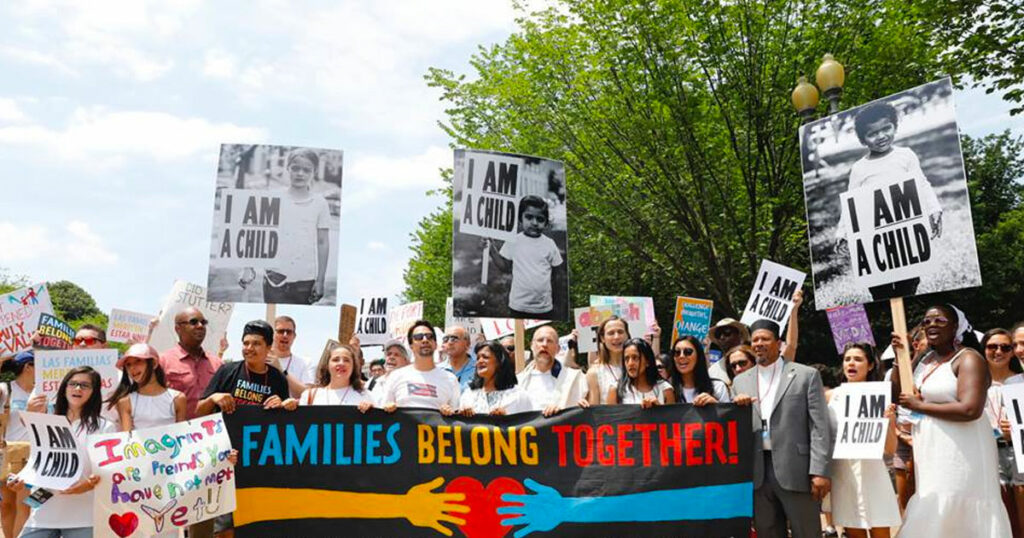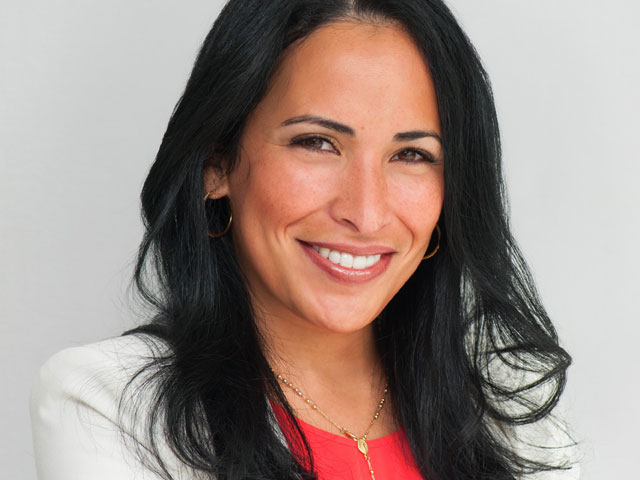Blog
Navigating Racist Triggers: The Unsettling Impact of Current Events on the Immigrant Experience

 As Donald Trump continues to fuel white nationalism with his recent tirade against four members of Congress who are all women of color, the essence of what it means to be American is in a seismic shift. The values of the constitution, the leadership elected to uphold it, and the American people are in direct conflict and the threat to already vulnerable communities like mine is real. The question that keeps getting louder in my ears is: Am I safe?
As Donald Trump continues to fuel white nationalism with his recent tirade against four members of Congress who are all women of color, the essence of what it means to be American is in a seismic shift. The values of the constitution, the leadership elected to uphold it, and the American people are in direct conflict and the threat to already vulnerable communities like mine is real. The question that keeps getting louder in my ears is: Am I safe?
As much as we are a nation of immigrants, nativism [born from the original immigrants], is inextricably part of our history. So while there’s nothing new about Trump’s sentiments of an ‘Us versus Them’ dynamic, what is different is the overt speech he’s using to incite racist, anti-immigrant, and mob-like rallying. Using the presidency as a platform to gaslight tensions that have been intensifying in recent years is not only irresponsible, but it’s dangerous. Hearing the president’s steady drumbeat of comments validating hate is stirring a deeply seeded reminder that I–like many others–have to be prepared to defend my nationality, my culture, and even my humanity. And before I hear another suggestion that we challenge these threats at the ballot box in 2020, I want to know what we can do now.
The growing crisis at the border and the threats of raids in target cities have triggered the paralyzing fears of my childhood. The panic of growing up in a home of mostly immigrants is a defining part of my identity, and the imminent threats we faced still haunt me today. Hearing the clamoring for a wall and the denials of what is happening in the detention centers on one side and watching the trauma-filled family reunions and testimonials of immigrants at the border on the other pinches a nerve that immediately flashes me back in time. Throughout the ‘90s – in the shadow of our nation’s capital–I grew up in a house where nearly a dozen immigrants could have been targeted on any given day.
Born to Latin American immigrants and raised among refugees, I was a U.S. citizen and should’ve felt safe. Instead, I lived in fear of the same threats I see children and families facing today. Most of my relatives came through networks of coyotes who smuggled them across several borders before getting to the U.S.-Mexico border. The routes depended on the number of people, transportation, housing, and the ultimate delivery point –Brownsville, McAllen, or all the way to Virginia. In those days, prices were lower, rape and violence weren’t as rampant as it is today, and family separation wasn’t what we now know. They eventually arrived shell-shocked–from the war they were escaping or the journey they made, or maybe both. I’ll never forget those days because, in moments like these, they feel like I’m living them all over again. That’s what immigrant trauma does to you. It rattles your sense of security at any moment.
What Trump has conveniently left out of the anti-immigrant narrative are the factors to which our own government has contributed to this immigration crisis. Through imperialist policy and action in the Western Hemisphere, the U.S. supported dictatorships, counter-revolutions, flawed trade agreements, and other activities that are the root causes of the Latin American immigration we’re still seeing today. It created the conditions that pulled my parents from Nicaragua, Dominican Republic, and Mexico. To ignore this history and instead incite the masses to a culture war only deepens our country’s complicated relationships with our closest neighbors–and an estimated 60 million people within our borders. To tell “The Squad” to go back to where they come from is to tell the rest of us (people of color with roots elsewhere) to do the same. That seems to be more anti-American than any calls that civil rights activists (including the Squad) have made for our country to do and be better.
As I’ve reflected on what is happening in our country, the snowballing public conversations on race and belonging compounded with the anxiety of what is happening at the border is a toxic cocktail to ingest. I’ve been checking in with friends and family, listening to and reading everything I can get my hands on to try and make sense of things. In conversations with some of my closest, I’ve relived moments when I was told to go back to where I came from–to stop speaking Spanish, to stop being who I am. The aggression that came at school, at work, and on the street from perfect strangers—all jagged little cuts in my American-ness. We’ve talked about being a person of color in America and the mixed feelings of fear, anger, frustration, determination, empowerment, and resilience. I’m encouraged by some of them reminding me that our families have grounded us with roots made to endure, and those that came before us – both abroad and in the U.S.–have paid forward our civil rights.
One conversation thread I found especially helpful highlighted the fact that while racism is inevitably part of American society, our society itself is changing in ways that can’t be stopped, silenced, or denied. Today, there are 86.4 million immigrants and U.S.-born children (inclusive of all races and ethnicities). And with more than half of the recent immigrants being women (~52%) and almost 1 million members of the LGBTQ community—the coalition of people that represent a more diverse America is growing, and so is our belonging. While I may not feel completely safe in today’s environment, these discussions and ideas give me the energy, solidarity, and refuge I need to ease anxiety and stay focused and present.
Given the negatively charged environment, it’s important to connect with friends and family that may be experiencing similar anxieties–directly or indirectly–related to racism and anti-immigrant sentiment. Here are a few suggested actions we can all take:
- Reflect and Reach Out – Take a moment to think about what is happening and how it affects you and those around you. Check-in with friends, colleagues, family, etc., to let them know you are watching and listening to things play out and offer a safe space to talk.
- Be Engaged – The landscape and conversation are evolving quickly, so stay up to speed on the issues and how they could impact you and/or others. And if you hear hate speech, speak up!
- Get Help – If you or someone you know are feeling anxious, depressed, or otherwise challenged by racism, anti-immigrant sentiment, or something else, talk to someone. This month (July) is Minority Mental Health Month, and people of color are among the most vulnerable to mental health conditions for a variety of reasons, including marginalization, cultural stigma, and access to resources. You can start by visiting Mental Health America.
- Get Involved – There are a variety of organizations (legal, nonprofit, faith-based) that you can connect with opportunities to help immigrant families through donations, pro bono services, and much more.
- Know This – America belongs to all of us.
Carolina Espinal is a board member of the Schott Foundation for Public Education and the Founding Principal of Mozaic Strategies + Inclusion-ist @ the Crossroads of People, Culture, and Business. Learn more about her and connect on LinkedIn or Twitter: @CaritozWay.




